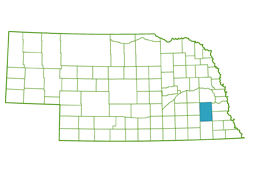|
|
Listings: 1 to 14 of 14
|
Research Polish ancestry online with this collection of Polish genealogy databases and indexes from Poland, the United States and other countries.
|
|
This powerful resource is run by the Association for Computer Genealogy, the largest genealogical society in Germany. Its database has over 14 million records including surnames, place names, geolocations, postal codes, foreign and former names, current administrative, legal and religious affiliations, and other databases. CompGen can be used to identify religious affiliations of denominations in villages whether Catholic or Evangelical (Lutheran). In addition, it identifies local family heritage books, city directories, tombstone records, obituaries, war casualty lists, etc.
|
|
It is necessary to establish an account on this site, but it is free to use. This website allows access to digitized State Regional Archives of Trebon and State District Archives of South Bohemia. In addition to parish records, there are some maps, land records and census data.
|
|
From the Danish Genealogical Society by Kirsten Sanders.
|
|
One of the strengths of this resource is its coverage of East and West Prussia, Brandenburg, Posen, Pomerania, and Silesia. One of its advantages is that it facilitates identification of today’s Lithuanian, Polish and Russian place names with current and old German place names. It also enables finding next level administrative jurisdictions and adjacent places. It also has some family name capabilities.
|
|
From the Swedish Genealogy Guide.
|
|
This mostly Catholic digital archive is provided by European archivists from the International Centre for Archival Research. Its holdings consist of birth, marriage, and death records, as well as other information from well over 7000 primarily Austrian and German parishes. Records are being added daily to this archive.
|
|
This is the most important of all German gazetteers. It lists nearly every place name (200,000+) in the German Empire (1871-1918) including related state and other jurisdictions, where the civil registry office was, as well as Catholic, Jewish, and Lutheran parishes, and nearby parishes. Place names include estates, farms, hamlets, mills, etc.
|
|
Three 20-minute presentations for RootsTech 2021 by Jenny Hansen. A patronymic name is one from the father.
|
|
A very useful website to learn about the current status of a city, districts, towns and village in Germany. It provides current administrative relationships, population, postal codes, phone dialing codes, GPS coordinates, automobile license plate information and so forth.
|
|
WieWasWie is one of the better European genealogy websites which has both civil and church vital records. It also has user-generated content like family trees and biographies.
|
|
From the National Institute. A patronymic name is one from the father.
|
|
Website may open with it in Swedish, but there is a button in the upper right to switch to English.
|
|
|


